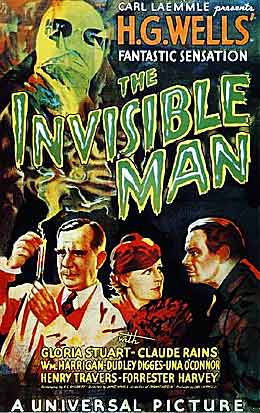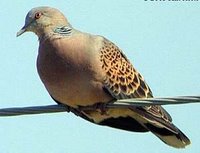
I was in Hampshire the other day, staying with my parents for Easter. I walked up to a local hill, Saturday evening. Nice place: Woodland Trust site, an arable farm turned back to hawthorn scrub, young wood, and chalk grassland. I thought I was walking there to see if the turtle doves had returned. They weren’t here ten years ago, but the scrub has brought them back, and I love turtle doves. Later I realised that wasn’t the whole reason. I also wanted to be unlocatable: a very different desire, but as strong nonetheless. It’s nice to know, sometimes, that no-one on earth knows where you are.
 No turtledoves, but I watched a blackcap bathing in a blank tractor-rut pool. I waited. Because bird-bathing is contagious. And soon two great tits, two blue tits and a male chaffinch joined it. A little flock of exuberant, wet birds. Brilliant.
No turtledoves, but I watched a blackcap bathing in a blank tractor-rut pool. I waited. Because bird-bathing is contagious. And soon two great tits, two blue tits and a male chaffinch joined it. A little flock of exuberant, wet birds. Brilliant.There are a couple of old coverts and shelter-belts on the reserve, and I walked into the top covert (larch, oak, woodpigeon roost) and threaded my way through along a thin deer-printed path of sticky boulder clay. Knelt down at the point where the path dried as it left the wood, and then sat back, very carefully, onto larch twigs, moss and pigeon feathers. A few elder twigs broke up my outline, but on the chalky grassland before me, two or three rooks were spooked and flew away. I wasn’t exactly invisible—but I intended to become so.
You often hear that sitting very still is enough to become invisible in a landscape. Balderdash. Well, I’ve never found it enough. You can’t become invisible merely by being still. You have to will yourself into invisibility.
I’m sitting on the ground, then, in the wood, my legs crossed and my back straighter than it ever is in a chair, letting my face become a mask as I become invisible. I think I sat there for at least half an hour, maybe an hour, without moving my face once. Try it. Try being expressionless for an hour. It is very interesting. Of course I moved my eyes. I watched larks and rooks and clouds and the scuts of rabbits as they crossed my field of view—it is painful for eyes and brain, right at the edge, in peripheral vision—and then gazed back on the field in front. Everything behind me was invisible. It is easy to forget you have a partial view. It’s not even really a semicircle.
So: just under a semicircle of vision. Everything behind me is sound. The click of larch-cones cooling as the temperature drops; bird-song in stepped distances (close birds, far birds, distant birds) and the sound of woodpigeons clattering in the trees as they come into roost. This split: sight in front, sound behind, is extraordinary. You can build a whole world from two entirely different semicircles: vision in front, noise behind, and it holds together seamlessly.
And, as always happens when you sit still, for a very long time, in the same place, the land ceases to be a map. You stop seeing it as something to navigate, move across, and it turns into something else. A place for other things. Other things' maps. That’s a bit hard to explain abstractly. I’m watching the rabbits, for example, forty, fifty feet in front of me, chasing each other, courting, grazing, running in alarm as a buzzard sails over, and I started thinking of the rabbits’ maps, not my own. And the buzzard’s maps, and the maps of moths. Like some crazed ecologist; all the different organisms in this little chalk rise, with its woods and broken flints and fences and blackthorn craters and rabbit-cropped turf; all of them have their own worlds here. Of course, writing it down comes across as trite, and a philosophical nonsense. But the experience, the intuition, in the field, is a different matter.
I’ve tried to describe this going-invisible thing many times, and people often mistake it for some radical derealisation. They think my world collapses into shapes and angles and empties of meaning. Like some strange narcotic-induced reverie. No! I say. No, no no! And of course, Barry Lopez puts it perfectly:
Hunting in my experience—and by hunting I simply mean being out on the land—is a state of mind. All of one's faculties are brought to bear in an effort to become fully incorporated into the landscape. It is more than listening for animals or watching for hoofprints or a shift in the weather. It is more than an analysis of what one senses. To hunt means to have the land around you like clothing. To engage in a wordless dialogue with it, one so absorbing that you cease to talk with your human companions. It means to release yourself from rational images of what something "means" and to be concerned only that it "is". And then to recognize that things exist only insofar as they can be related to other things. These relationships—fresh drops of moisture on top of rocks at a river crossing and a raven's distant voice—become patterns. The patterns are always in motion. Suddenly the pattern—which includes physical hunger, a memory of your family, and memories of the valley you are walking through, these particular plants and smells—takes in the caribou. There is a caribou standing in front of you. The release of the arrow or bullet is like a word spoken out loud. It occurs at the periphery of your concentration.Oh, that's so good. And there’s much, much more to be said about the phenomenal world of hunting. It’s hard to write about hunting at all, because there are as many different types of hunting as there are types of marriage. Another time, yes—stumblingly, not like Lopez.
But what is clear, and what is worrying, is this: once you’ve learned how to become invisible, it becomes second nature. And it’s hard not to do it all the time. And because you can do it while you’re walking, too, it can be very dangerous. People actually walk into you in the street, as if they didn’t see you. I’m not kidding. Really. Yesterday. I was thinking hard about work, walking back from a meeting, and then about nothing at all, and blam! Three people, one after the other, within the space of fifty feet, walked into me. I have a bruise on one arm to prove it. Hey ho.
No comments:
Post a Comment